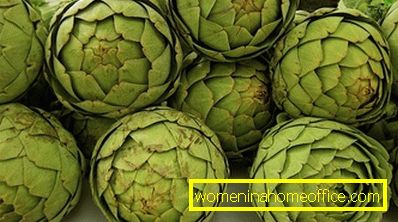Gas formation in the intestines
Each of us has questions that we would like to ask your doctor, but have never done this out of modesty or even shame. Today we will talk about flatulence and how to get rid of gas in the intestines.
What causes gassing in the intestines?

Gases and flatulence are reactions of the organism, which is not very convenient to talk about, despite the fact that this is a natural phenomenon. In addition, recurrent flatulence is considered a very common problem. It all starts with eating. After the food is chewed and saturated with saliva, it descends into the esophagus to reach the stomach. There the food ball is digested by gastric juice, and then continues its path in the intestines.
The digestion process lasts about eight hours. Stool is formed from the digested food and moves through the large intestine to "evacuate." But some of the foods eaten are not digested by the body and are in contact with bacteria in the colon. The waste products of bacteria contribute to the fermentation of food debris and the formation of gases.
It is assumed that, in a normal state, an average of 10 to 25 gas emissions a day occurs in humans, with 0.5 to 1.5 liters being released into the atmosphere. Rate your condition yourself. If this indicator is higher or lower, then first of all you need to pay attention to your diet. This may be an important criterion.
If they established a prize for the most gas-generating product, then the winners would be:
- cauliflower;
- Brussels sprouts;
- legumes, especially peas and white beans;
- cherries, pears, apples and other fruits.
Excess gas can be triggered by excessive consumption of chewing gum containing sugar substitute and sorbitol, as well as soft carbonated drinks. Flatulence is always accompanied by bloating and unpleasant odor. These two factors vary depending on the type of food and bacteria that cause fermentation.

Studies conducted on animals showed that the composition of the microflora on the left and right sides of the colon is different. Fiber-rich foods such as beans or artichokes give gas on the right side of the colon. These gases will have an unpleasant, but, let's say, traditional smell. But meat and meat products cause gases in the left side of the colon. And they have a much more unpleasant smell, because they contain more hydrogen sulfide. Another reason is the very nature of the intestinal flora, which is individual for each person.
Drug treatment
What to do when gas in the stomach and farting, the desire for which always arise out of place and not at the time? If you complain of bloating in addition to gas, it is appropriate to contact your gastroenterologist and undergo a thorough examination. Before treating gas formation in the intestine, it is necessary to determine what causes this condition.
In addition to bad eating habits, there are a number of specific diseases that are accompanied by significant and recurring abdominal bloating. These may be diseases of the stomach or intestines of infectious or inflammatory origin. Many women suffer from abdominal bloating before menstruation or during pregnancy.
However, to date, no medical solution can definitively cure bloating and flatulence. Used to treat drugs are intended only to alleviate the condition. Consider the most common ones.
In the foreground are kaolin and simethicone-based products with an anti-foam effect, which allows them to prevent the formation of gas. Quite often they are used in combination with antacids, especially when abdominal distention is accompanied by a burning sensation in the stomach. The most famous antacids:
- "Polysilan";
- "Maalox";
- "Contracid".
For cramps and abdominal pain, drugs that have an antispasmodic effect can be used. The use of activated carbon helps to absorb intestinal gases and curb their production. An intestinal adsorbent containing a mixture of coal with another substance may also ease bloating. This category of drugs includes:
- "Carbolen";
- Carbactin;
- "Carbolong".
Healing properties of the diet of the gas

Flatulence is certainly unpleasant, but, as a rule, is not considered a disease. Therefore, not only doctors, but also nutritionists know how to get rid of increased gas formation in the intestines:
- Moderation in food is one of the most appropriate means to prevent bloating and flatulence. According to nutritionists, it is necessary to limit all foods that can cause swelling or gas in the stomach and intestines. Please note that such products are often very beneficial to our health, because they are usually rich in fiber, so do not completely eliminate them from the diet, but simply limit consumption.
- Avoid eating whole milk, as it is harder to digest. Give the advantage of dairy products.
- Limit or eliminate the consumption of soft drinks and beer. After a meal, mint herbal teas or decoction of dill is best.
- Enrich the diet with boiled or steamed fruits and vegetables. They will facilitate intestinal transit, thus reducing fermentation while reducing swelling.
- Foods high in fructose, such as jam, as well as saturated fatty sauces, fried foods, etc., prevent the absorption of food and make it difficult to digest.
- Limit lactose intake, especially for those who suffer from intolerance.
- Eating slowly is a great way to improve your digestion.
If abdominal distention is a concomitant symptom of another disease, then the main disease should be treated first.